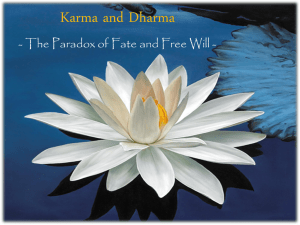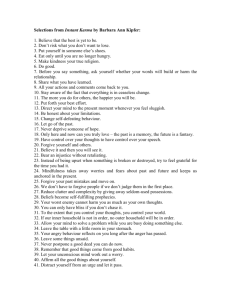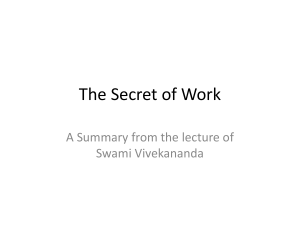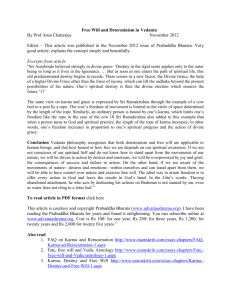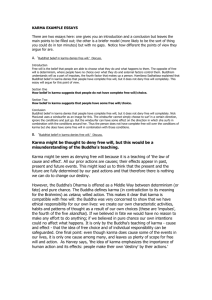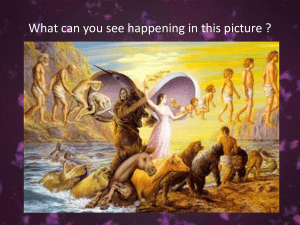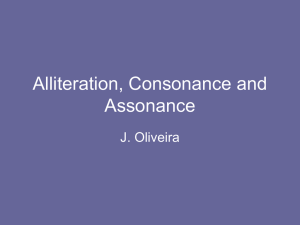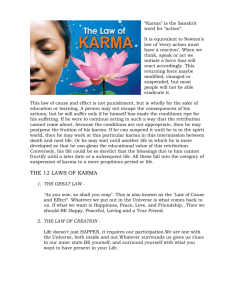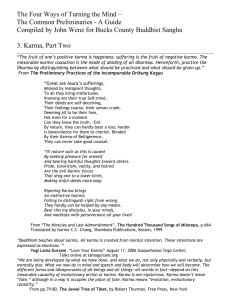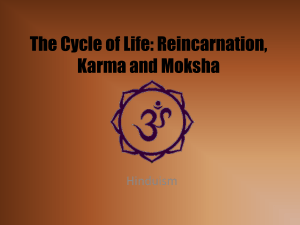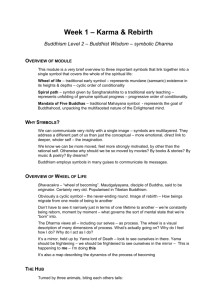Idealist View of Life
advertisement
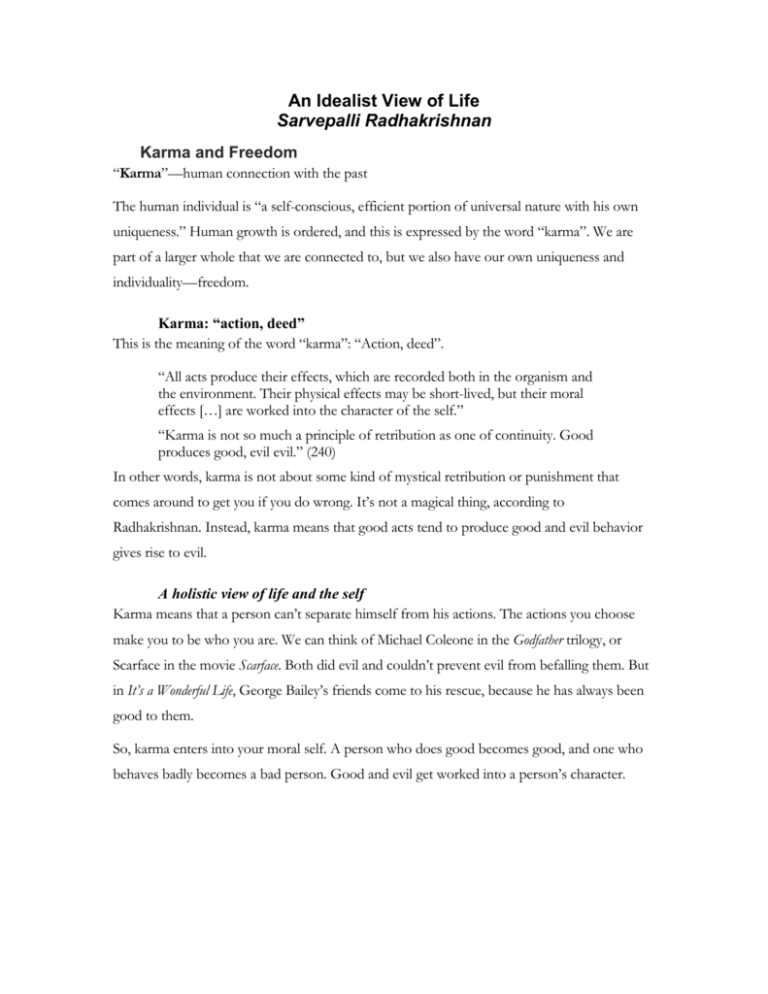
An Idealist View of Life Sarvepalli Radhakrishnan Karma and Freedom “Karma”—human connection with the past The human individual is “a self-conscious, efficient portion of universal nature with his own uniqueness.” Human growth is ordered, and this is expressed by the word “karma”. We are part of a larger whole that we are connected to, but we also have our own uniqueness and individuality—freedom. Karma: “action, deed” This is the meaning of the word “karma”: “Action, deed”. “All acts produce their effects, which are recorded both in the organism and the environment. Their physical effects may be short-lived, but their moral effects […] are worked into the character of the self.” “Karma is not so much a principle of retribution as one of continuity. Good produces good, evil evil.” (240) In other words, karma is not about some kind of mystical retribution or punishment that comes around to get you if you do wrong. It’s not a magical thing, according to Radhakrishnan. Instead, karma means that good acts tend to produce good and evil behavior gives rise to evil. A holistic view of life and the self Karma means that a person can’t separate himself from his actions. The actions you choose make you to be who you are. We can think of Michael Coleone in the Godfather trilogy, or Scarface in the movie Scarface. Both did evil and couldn’t prevent evil from befalling them. But in It’s a Wonderful Life, George Bailey’s friends come to his rescue, because he has always been good to them. So, karma enters into your moral self. A person who does good becomes good, and one who behaves badly becomes a bad person. Good and evil get worked into a person’s character. The Problem: Man & Nature Is freedom possible? How does the human being relate to the rest of the universe? In particular, how is freedom possible? This is a problem Kant worried about. If nature is all determined by natural laws, how can human beings be free? What role do reason, self-consciousness, and will play? Scientific determinism: Everything is subject to scientific laws, by which we can predict its behavior. We see this with addicts, who are unable to control what they do. Historical determinism: We are caught up in a flow of history, which carries us along. Examples: Marx and the inevitable Proletarian revolution. There is widespread despair that Mid-East peace is possible; it seems sometimes that no matter what else happens in the world, Israelis and Palestinians will always fight. Creative Freedom By this SR means this: “The law that links us with the past also asserts that it can be subjugated by our free action.” We are free—not perfectly free, but free enough to influence the world around us. “The law of karma says that each individual will get the return according to the energy he puts forth.” In other words, Radhakrishnan affirms that spirit is real and has real effects. “Subjection to spirit is the law of universal nature.” By saying this, Radhakrishnan denies that the laws of nature have the final say. The world is more than just matter in motion. Self-consciousness Human beings are not blind cogs in nature’s wheel. Because of reason, they can say “I” and consciously collaborate with the power that controls and directs nature. Freedom of the will simply means freedom of the self. An Objection Perhaps self-determination is not freedom. Look at the drunkard. “The habit has become part of his self.” The answer: “The self represents a form of relatedness or organization…Selfdetermination means not determination by any fragment of the self’s nature but by the whole of it.” “Sheer necessity is not to be found in any aspect of nature…Human freedom is a matter of degree.” Karma & Responsibility “Freedom is not caprice…The character, at any given point is the condensation of our previous history.” That is, we are responsible, not only for what we do, but for what we have made ourselves to be. “Choice is the assertion of freedom over necessity, by which it converts necessity to its own use and thus frees itself from it.” Life is like a game of bridge; you play the cards you’re dealt. Misfortunes of others Karma encourages sympathy toward misfortune. “The more understanding we are, the less do we pride ourselves on our superiority.” We are not free of the weaknesses of Oedipus, Hector, Lear, Macbeth. So we cannot judge others who have found their lives to be “too much” and have failed seriously.

